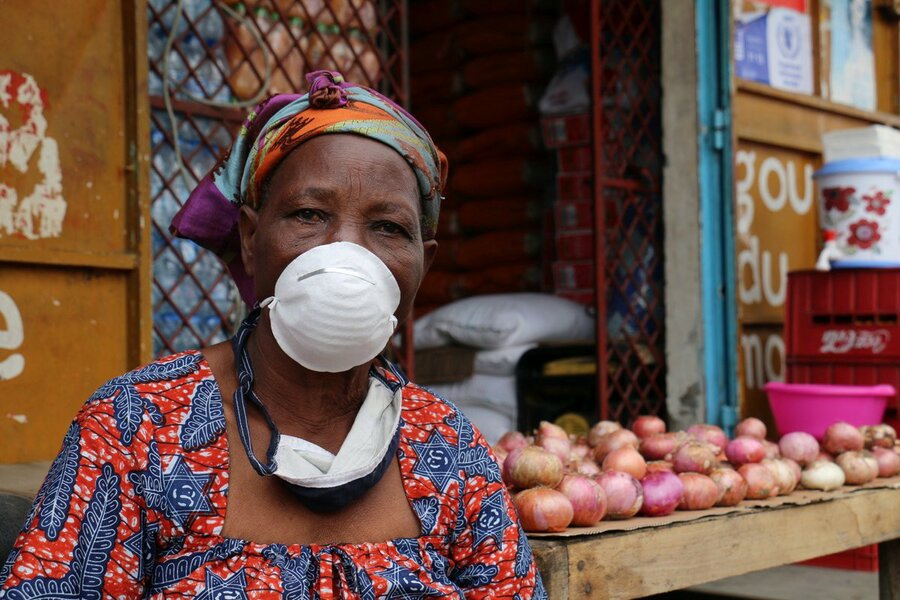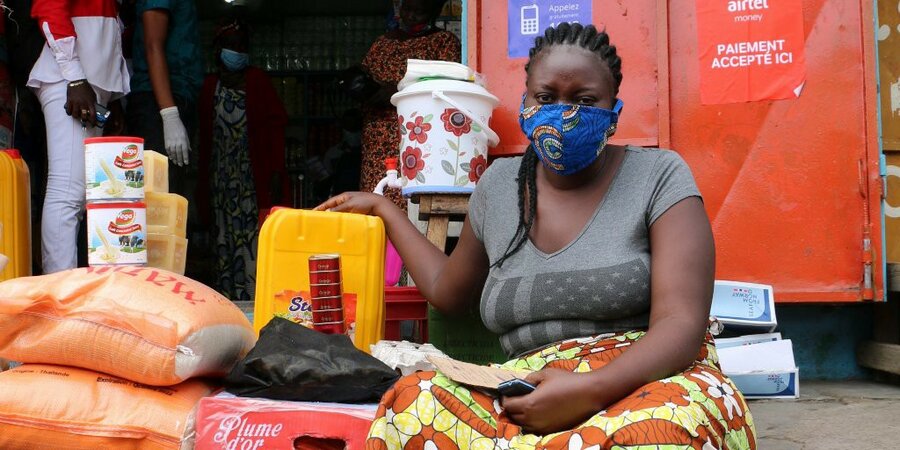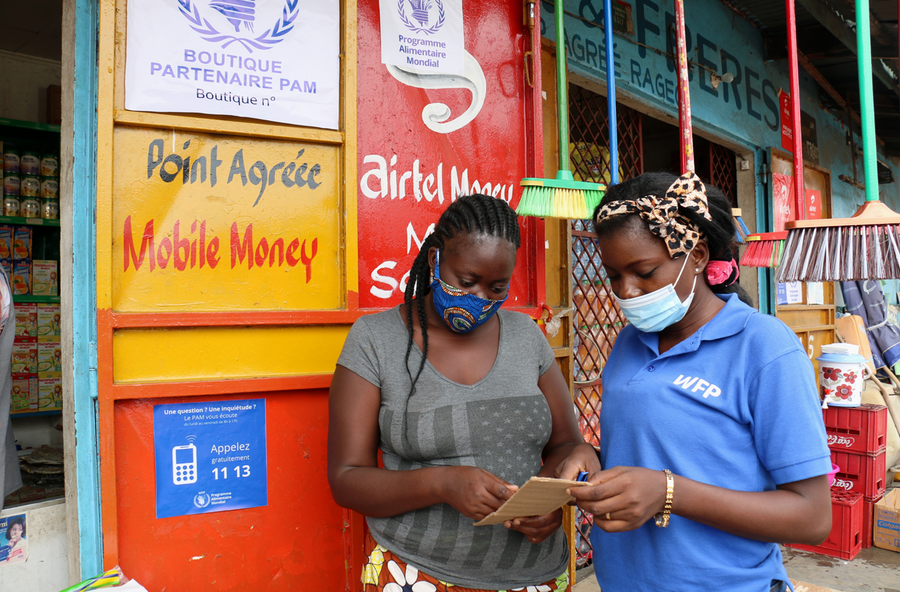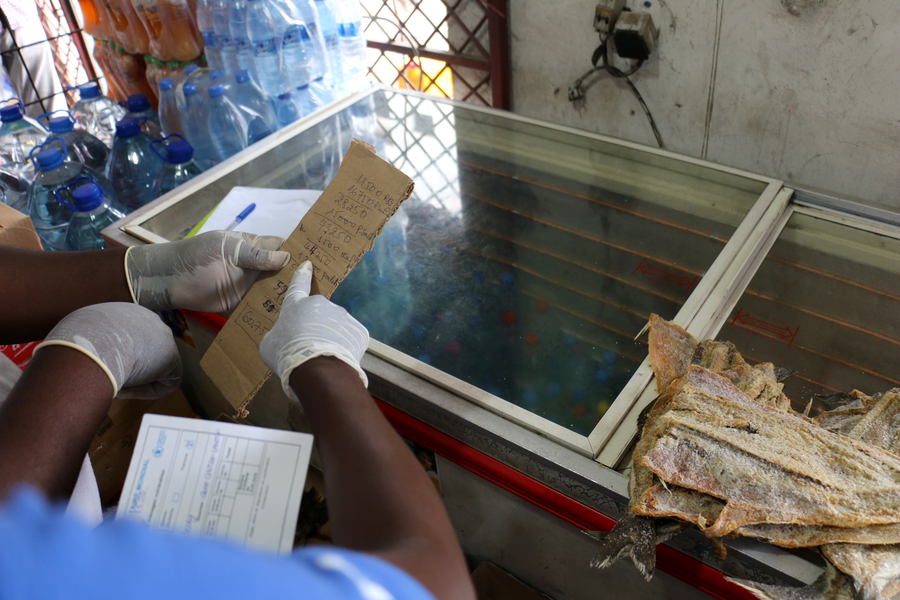Hunger in lockdown
As a result of the measures taken to contain the spread of coronavirus in the Republic of Congo, people in Brazzaville who were barely getting by are now struggling to make ends meet.

The nationwide lockdown, imposed on 31 March, has kept people from working. Brazzaville's ordinarily busy markets are now only open three days a week — on Mondays, Wednesdays and Fridays — making it difficult to buy food. And because supply chains for both local and imported foods are disrupted, prices have shot up. A typical local food basket — consisting of salted or smoked fish, pulses, peanut paste, cassava flour, oil and condiments — is now 10 percent more expensive than two weeks ago.
The combination of lost incomes and higher food prices is causing a spike in hunger. The World Food Programme (WFP) estimates that the number of people in need of assistance in Congo's urban areas has doubled, from 150,000 to 300,000.
Hunger as feature of lockdown
Berthe, 61, is a mother of six. Her business as a market trader is in trouble as a result of the rise in prices.
"I prepare cassava products at home and sell them on the market. But the prices of raw cassava have increased. Before [the lockdown] I bought them at 9,000 francs each. But now they cost 15,000 francs. I'm still selling cassava, but it's not enough to feed the family… I'm fighting to feed my children."

Pria, 48, is a hairdresser. Now she is out of work. "I feed eight people at home, including five children, my younger sister and our mother, who is disabled," she said. "Before the lockdown, I was the only person in the family to have a job. My elderly mother is in hospital right now and I don't have the money to buy the medicine she needs."
Mobile money, real food
Mid-May, WFP launched mobile money transfers to help 34,000 vulnerable people just like Berthe and Pria, living in outlying arrondissements of Brazzaville. They received a mobile money transfer equivalent to US$ 17 per person in order to purchase essential goods, including food and soap, from a network of WFP partner shops.

With mobile money, people receive their money at home, on their own phone, and don't have to handle cash. The shops that work with WFP have hand-washing stations and have adopted social distancing measures.
Today, Berthe came to the store with her daugther, Bénédice. They hired a wheelbarrow to carry their groceries home — there is no public transportation during the lockdown.

Thanks to the transfer she received, Pria bought rice, salted fish, chicken, soap, caned sardines and oil. As soon as she gets home, she plans on cooking a meal of chicken for her family of eight.
Congo's lockdown will be lifted soon, but people like Berthe and Pria will have to start all over again from scratch. WFP assistance will help them weather the storm.

